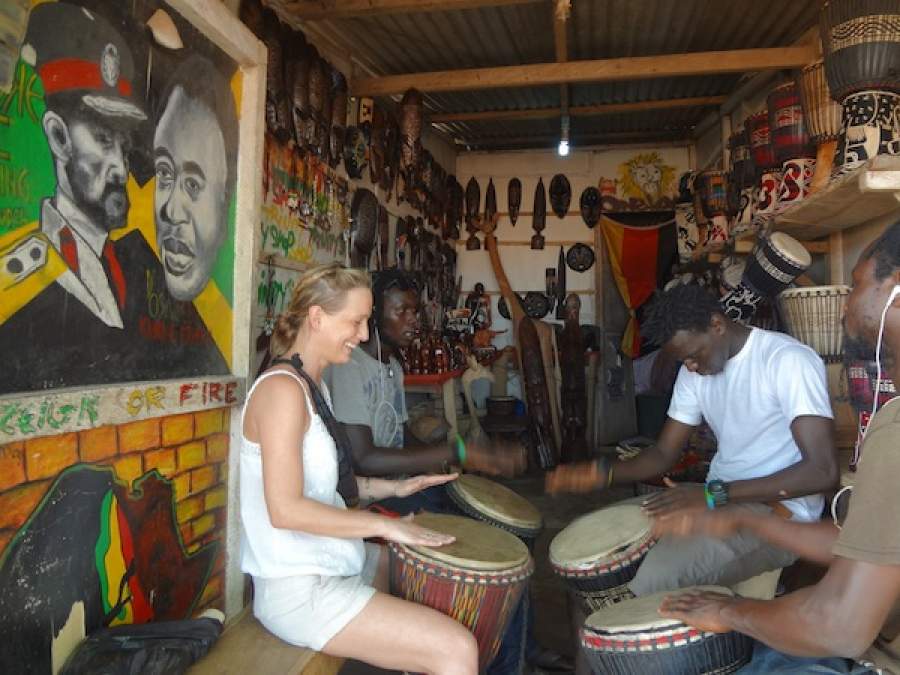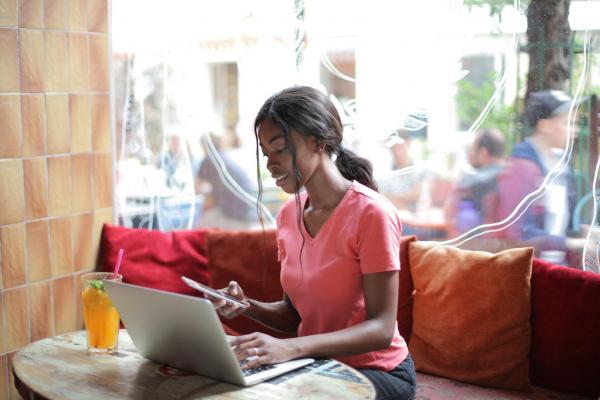The definition of culture shock from Merriam-Webster Dictionary is “a sense of confusion and uncertainty sometimes with feelings of anxiety that may affect people exposed to an alien culture or environment without adequate preparation.”
Since I have travelled extensively and I study cultural differences, I did not think I would suffer culture shock. I was so wrong! I did my research before coming to Ghana and talked to Ghanaians in Toronto and had thought I would be prepared but I am surprised to admit I was not.
I have found myself in tears over the strangest things as well, such as not being able to open a door or finding a lizard in my room. Many Ghanaian customs have thrown me through loops, too. For example, Ghanaians like to eat alone. At first I thought it was me, but have been informed this is customary for some Ghanaians. Also, if you use your left hand to wave at someone, they will give you an odd look—it is considered rude to use your left hand. Another cultural adjustment was that I couldn’t understand at first why everyone, especially kids, would yell at me and say “obruni.” I now know this means foreigner. As an “obruni” I stand out everywhere I go, which takes some getting used and the kids especially are fascinated.
Usually when I travel, I stay in hotels or with friends and family. But this experience is very different as I am living in country as a Ghanaian—I have no concierge to ask for help here. Life in Ghana is harsh—not just for foreigners, but for Ghanaians too. They have rationed power so often when you need it or want it you don’t have it. If I were in a hotel, I would have a generator and someone would take care of turning it on or off and filling with fuel. As a resident here I do not have this. (Thank goodness one of my housemates has learned these necessary skills or I would be in big trouble, when they are not home I am reduced to candles and flashlights.) Often we don’t have water, so even though my house is very nice by Ghanaian standards, we can’t use machines such as the washer. So I have to wash my laundry in buckets of water, which doesn’t sound hard but add the heat and energy you use to do this and it is exhausting.
Other errands are equally exhausting. I needed money the other day and this was a big problem because my bank card only works in one bank. (Ecobank seems to work for TD Canada Trust Customers here, although another Canadian friend who also banks at the same place in Canada can only use his at Barclay's. Things often don’t make sense here.) Anyway, I could not find an Ecobank ATM that was working the other day—again because when the power goes out, then so do the bank machines. I advise travellers to ask about which banks they partner with when travelling abroad and always let your credit card providers know you are travelling or they can stop service, which is very frustrating.
I have also had marriage proposed in the past few weeks more then I ever thought I would in my entire life, and have been told by many Ghanaian men that they love me. This has a very different meaning here then what we are used too in our Western culture, it means they want to get to know you—it is not meant literally. It did make me feel uncomfortable until I knew the meaning. There is so much to learn. I want to be an understanding guest in this country but the customs have been a bit of a surprise to me. They are so different then what I am used to.
I found a couple resources to help prepare for the cultural changes if you are thinking of visiting Ghana. Culture Smart, Ghana: The Essential Guide to Customs and Culture by Ian Utley is helpful. I would also recommend Brandt’s Ghana Guide Book by Phillip Briggs. It is excellent and very helpful and it also seems to be the favorite among most expats that I have talked to.
Add this article to your reading list




